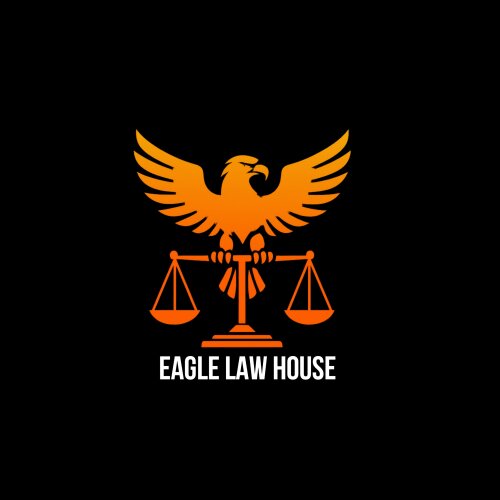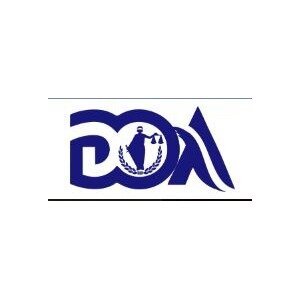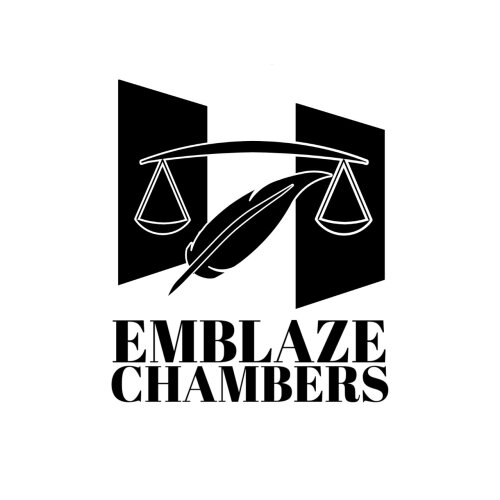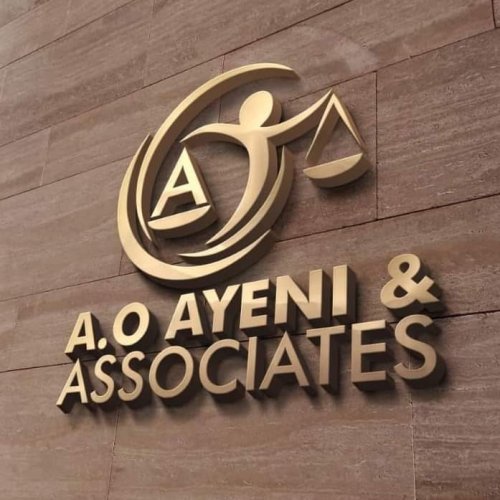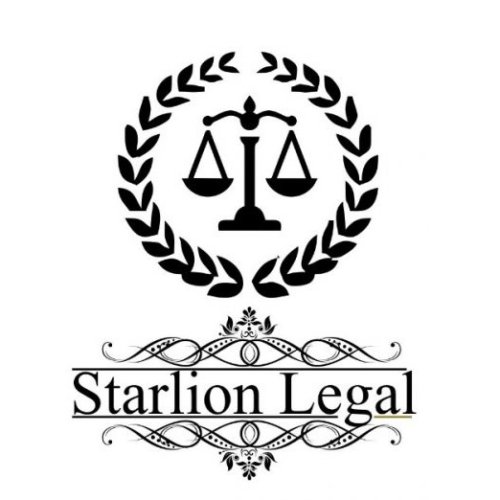Best International Trade Law Lawyers in Abuja
Share your needs with us, get contacted by law firms.
Free. Takes 2 min.
List of the best lawyers in Abuja, Nigeria
About International Trade Law in Abuja, Nigeria
International Trade Law in Abuja, Nigeria, plays a pivotal role in the regulation of goods and services crossing international borders. As Nigeria's capital, Abuja hosts several government agencies and international businesses, making it a hub for trade activities. The legal framework governing international trade is designed to ensure compliance with international treaties, protect economic interests, and facilitate the smooth operation of cross-border trade transactions. Lawyers specializing in this field are adept at navigating complex regulations, securing trade agreements, and resolving disputes that may arise between parties from different jurisdictions.
Why You May Need a Lawyer
Engaging a lawyer in International Trade Law can be crucial for multiple reasons:
- Contract Negotiation and Drafting: Assistance with creating agreements that comply with international standards and protect your interests.
- Customs and Tariffs Compliance: Navigating complex regulations surrounding the import and export of goods.
- Dispute Resolution: Addressing trade disputes, whether through arbitration or litigation.
- Intellectual Property: Protecting your trademarks and patents across borders.
- Trade Sanctions and Restrictions: Ensuring compliance with international sanctions and trade restrictions.
Local Laws Overview
Several local laws impact International Trade in Abuja, Nigeria, including:
- Customs and Excise Management Act: Governs the importation, exportation, and transit of goods.
- Nigerian Export Promotion Council Act: Encourages export-related activities through institutional support.
- Standards Organization of Nigeria Act: Ensures that imported and exported goods meet necessary quality standards.
- Central Bank of Nigeria's FX Regulations: Regulates foreign exchange transactions and impacts international trade payments.
Frequently Asked Questions
1. What is International Trade Law?
International Trade Law encompasses regulations and agreements that govern trade between countries, including the import and export of goods and services, trade disputes, and trade finance.
2. Do I need a lawyer to start exporting goods from Nigeria?
While it's not mandatory, having a lawyer can help you navigate complex regulations, ensure compliance, and safeguard your business interests.
3. What documents are required for importation into Nigeria?
Common documents include a bill of lading, commercial invoice, packing list, import declaration form, and Nigeria’s Customs’ Form M.
4. How are trade disputes resolved in Nigeria?
Trade disputes can be resolved through negotiation, mediation, arbitration, or litigation. Utilizing international arbitration is common for cross-border disputes.
5. What are the penalties for non-compliance with customs regulations?
Penalties can include fines, forfeiture of goods, and, in severe cases, criminal prosecution.
6. How can I protect my intellectual property in international trade?
Register trademarks and patents in each jurisdiction where you do business and consult a lawyer to understand specific international protections.
7. How does one apply for a trade license in Nigeria?
Contact the Nigeria Export Promotion Council or relevant trade agencies for guidelines on obtaining necessary trade licenses and certifications.
8. What are Incoterms, and why are they important?
Incoterms define the responsibilities of buyers and sellers in international transactions. They help avoid misunderstandings related to shipping costs, risks, and liabilities.
9. Are there any incentives for export businesses in Nigeria?
Yes, there are various incentives, including tax exemptions and access to funding through the Nigerian Export Development Fund.
10. What role do international treaties play in Nigeria's trade policies?
International treaties help shape domestic trade laws by establishing a framework for trade agreements and influencing regulations and standards.
Additional Resources
Consider consulting the following organizations for more information:
- Nigeria Export Promotion Council (NEPC): Supports exporters and provides guidance on export procedures.
- Standards Organization of Nigeria (SON): Ensures the regulation of product standards for imported and exported goods.
- Nigeria Customs Service: Provides information on import/export requirements and customs regulations.
- Central Bank of Nigeria (CBN): Oversees policies related to trade finance and foreign exchange regulations.
Next Steps
If you require legal support in International Trade Law, consider these steps:
- Identify Your Needs: Clearly outline the specific legal issues or transactions you're dealing with.
- Research Law Firms: Look for law firms in Abuja that specialize in International Trade Law, and review their experience and credentials.
- Consult an Expert: Schedule consultations with potential lawyers to discuss your case and determine the best fit for your needs.
- Assess Costs: Understand the fee structure and ensure it aligns with your budget and expectations.
- Secure Legal Representation: Engage a lawyer who can effectively represent your interests and guide you through the legal process.
Lawzana helps you find the best lawyers and law firms in Abuja through a curated and pre-screened list of qualified legal professionals. Our platform offers rankings and detailed profiles of attorneys and law firms, allowing you to compare based on practice areas, including International Trade Law, experience, and client feedback.
Each profile includes a description of the firm's areas of practice, client reviews, team members and partners, year of establishment, spoken languages, office locations, contact information, social media presence, and any published articles or resources. Most firms on our platform speak English and are experienced in both local and international legal matters.
Get a quote from top-rated law firms in Abuja, Nigeria — quickly, securely, and without unnecessary hassle.
Disclaimer:
The information provided on this page is for general informational purposes only and does not constitute legal advice. While we strive to ensure the accuracy and relevance of the content, legal information may change over time, and interpretations of the law can vary. You should always consult with a qualified legal professional for advice specific to your situation.
We disclaim all liability for actions taken or not taken based on the content of this page. If you believe any information is incorrect or outdated, please contact us, and we will review and update it where appropriate.



